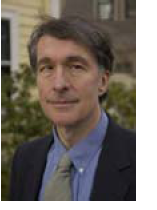Howard Gardner is a Professor of Education at Harvard University who has attempted to expand traditionally narrow understandings of the nature of intelligence. Gardner’s theory of multiple intelligences attempts to break down earlier ideas that there is one kind of intelligence and one way of learning.

[The following are] the seven intelligences we have located, and … one or two examples of each intelligence. Linguistic intelligence is the kind of ability exhibited in its fullest form, perhaps, by poets. Logical-mathematical intelligence, as the name implies, is logical and mathematical ability, as well as scientific ability. Jean Piaget, the great developmental psychologist, thought he was studying all intelligence, but I believe he was studying the development of logical-mathematical intelligences. Although I name the linguistic and logical-mathematical intelligences first, it is not because I think they are the most important—in fact, I am convinced that all seven of the intelligences have equal claim to priority. In our society, however, we have put linguistic and logical-mathematical intelligences, figuratively speaking, on a pedestal. Much of our testing is based on this high valuation of verbal and mathematical skills. If you do well in language and logic, you should do well in IQ tests and SATs, and you may well get into a prestigious college, but whether you do well once you leave is probably going to depend as much on the extent to which you possess and use the other intelligences, and it is to those that I want to give equal attention.
Spatial intelligence is the ability to form a mental model of a spatial world and to be able to maneuver and operate using that model. Sailors, engineers, surgeons, sculptors, and painters, to name just a few examples, all have highly developed spatial intelligence. Musical intelligence is the fourth category of ability we have identified: Leonard Bernstein had lots of it; Mozart, presumably, had even more. Bodily-kinesthetic intelligence is the ability to solve problems or to fashion products using one’s whole body, or parts of the body. Dancers, athletes, surgeons, and craftspeople all exhibit highly developed bodily-kinesthetic intelligence.
Finally, I propose two forms of personal intelligence—not well understood, elusive to study, but immensely important. Interpersonal intelligences is the ability to understand other people: what motivates them, how they work, how to work cooperatively with them. Successful salespeople, politicians, teachers, clinicians, and religious leaders are all likely to be individuals with high degrees of interpersonal intelligence. Intrapersonal intelligence, a seventh kind of intelligence, is a correlative ability, turned inward. It is a capacity to form an accurate, veridical model of oneself and to be able to use that model to operate effectively in life.
These, then, are the seven intelligences that we have uncovered and described in our research. This is a preliminary list … each form of intelligence can be subdivided, or the list can be rearranged. The real point here is to make the case for the plurality of intellect. Also, we believe that individuals may differ in the particular intelligence profiles with which they are born, and that certainly they differ in the profiles they end up with. I think of the intelligences as raw, biological potentials, which can be seen in pure form only in individuals who are, in the technical sense, freaks. In almost everybody else the intelligences work together to solve problems, to yield various kinds of cultural end states—vocations, avocations, and the like …
It is of the utmost importance that we recognize and nurture all of the varied human intelligences, and all of the combinations of intelligences. We are all so different largely because we all have different combinations of intelligences. If we recognize this, I think we will have at least a better chance of dealing appropriately with the many problems that we face in the world. If we can mobilize the spectrum of human abilities, not only will people feel better about themselves and more competent; it is even possible that they will also feel more engaged and better able to join the rest of the world community in working for the broader good. Perhaps if we can mobilize the full range of human intelligences and ally them to an ethical sense, we can help to increase the likelihood of our survival on this planet, and perhaps even contribute to our thriving.
Gardner, Howard. 1993. Multiple Intelligences: The Theory in Practice. New York: Basic Books. pp. 6, 8–9, 12.
|| Amazon || WorldCat
